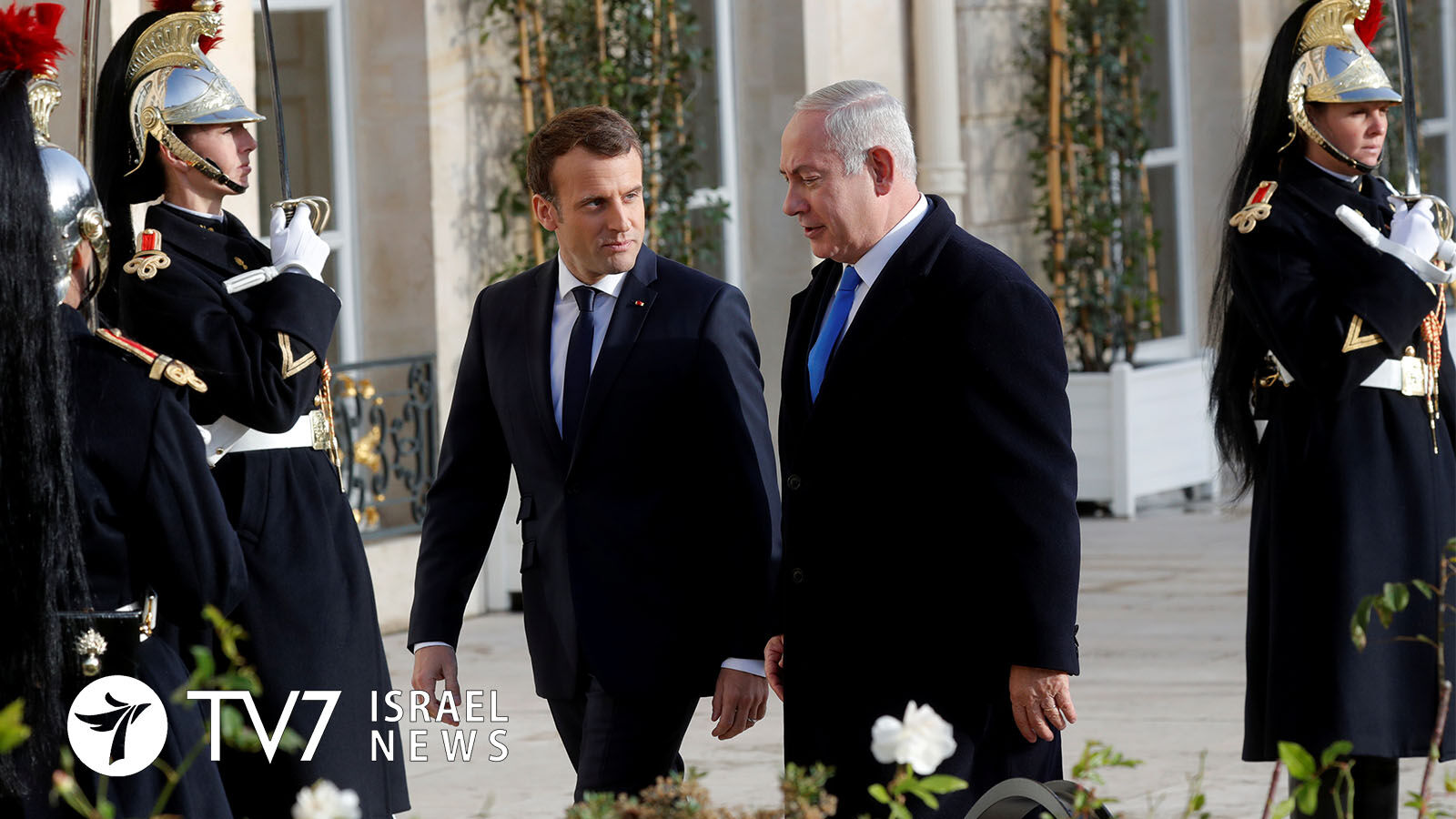“The main topic of our talk will be Iran, of course, and the joint efforts to fight its aggression and its aspiration to obtain nuclear weapons,” said Israeli Prime Minister Benjamin Netanyahu upon departure for a summit with French President Emmanuel Macron.
By Erin Viner
According to an Israeli governmental statement, the two leaders discussed at length ways to confront the Iranian nuclear threat.
While stressing the need to bolster deterrence against Iran and its proxies in the Middle East, the Israeli Premier urged the imposition of “significant sanctions” on the Ayatollah regime. He also called for the European Union to designate the Islamic Revolutionary Revolutionary Guards Corps as a terrorist entity.
Macron called for “firmness in the face of Iran’s headlong rush, which if continued would inevitably have consequences,” said an Élysée Palace statement, adding that the French President also warned that Iran’s “support for Russian aggression in Ukraine” leaves it exposed “to sanctions and increasing isolation.”
Discussion also centered on the need to maintain regional stability, particularly in Lebanon. The Arab Republic, which gained independence from France in 1943, is struggling to combat a devastating economic meltdown.
Prime Minister Netanyahu and President Macron also discussed opportunities to expand Israel’s ‘circle of peace’ with Arab states.
Turning to the recent wave of violence with the Palestinians, the French leader expressed full support for Israel’s battle against terrorism while cautioning against any unilateral measures that could lead to further escalation between the sides. He also reiterated firm opposition to enlargement of Jewish communities in the West Bank territories of Judea, Samaria and the Jordan Valley, which he insisted would effectively sabotage realization of the Two-State Solution to the Arab-Israeli Conflict.
Netanyahu later described the summit with French President Macron as “excellent,” and “their best meeting ever.” He revealed that while their positions were not identical on matters regarding Iran, Saudi Arabia and Africa, that they were getting closer. The two leaders last met in Jerusalem in 2020.
Highlights of Netanyahu’s three-day visit to France also included a meeting for over an hour with around 60 local leading businesspeople. Some of the executives reportedly expressed great interest in entering the Israeli market, while those already active explored options to deepen current investments.
Talks with French Jewish community leaders culminated with the Prime Minister’s invitation, “that while every Jewish man and woman in the world is entitled to decide their own future, it needed to be known that if they want to make Aliyah to the State of Israel, they would be welcomed with open arms and a red carpet.”
